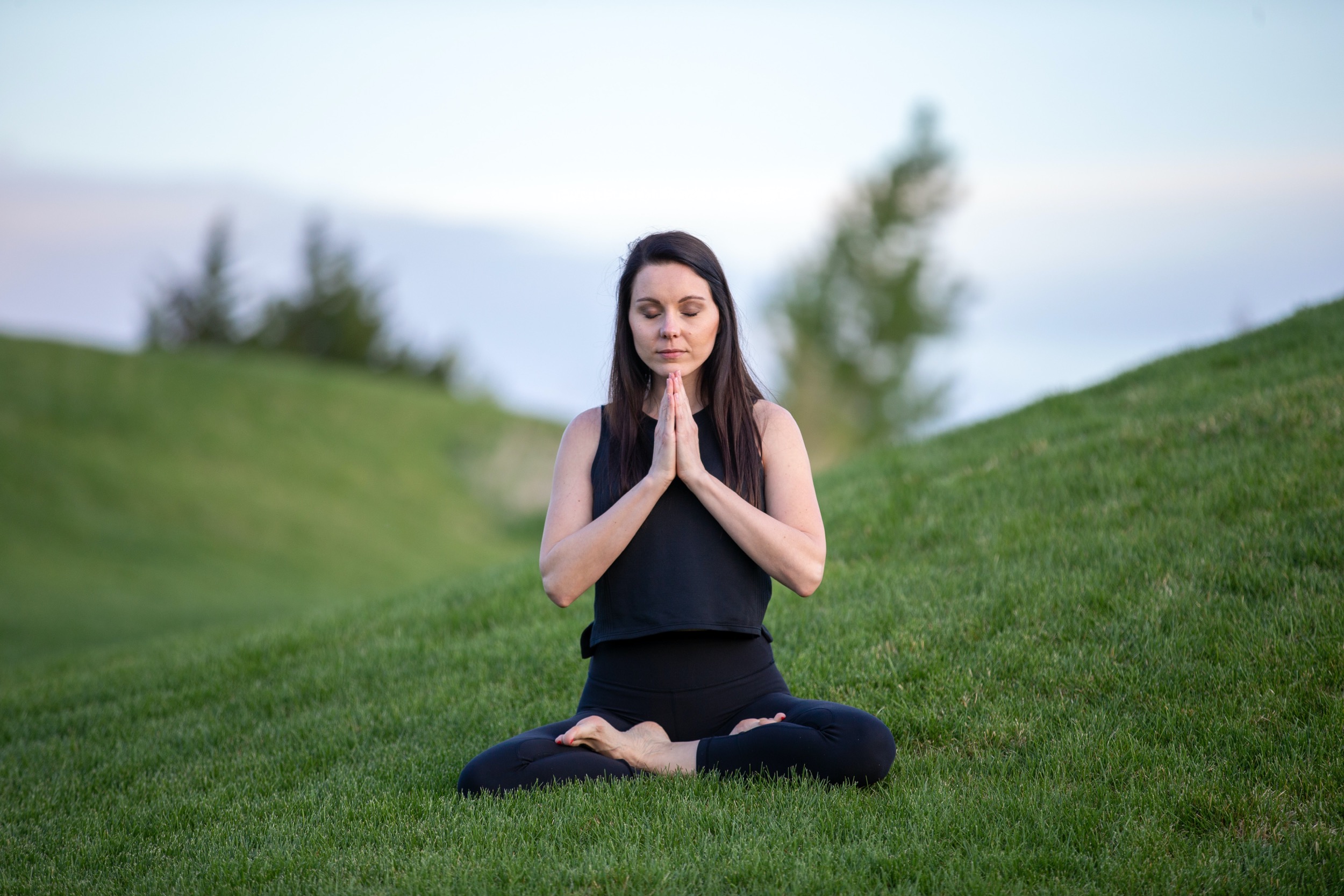If you’re looking to cultivate resilience in your life, you may want to consider incorporating mindfulness practices into your routine. Mindfulness, the practice of being present and non-judgmental in the moment, has been shown to have a positive impact on resilience. By cultivating mindfulness, you can learn to regulate your emotions, reduce stress, and bounce back from adversity.
Resilience is the ability to adapt and recover from challenging situations. It’s an important skill to have in life, as everyone faces setbacks and obstacles at some point. Mindfulness can help you build resilience by increasing your awareness of your thoughts and emotions and teaching you to respond to them in a more constructive way. With mindfulness, you can learn to approach difficult situations with a sense of calm and clarity, rather than being overwhelmed by stress and anxiety.
In this article, we’ll explore the connection between mindfulness and resilience, and how you can cultivate resilience through mindfulness practices. We’ll also discuss some mindfulness techniques that you can use to build your resilience and the role that mindfulness and resilience play in mental health.
Understanding The Act of Mindfulness
Mindfulness is the practice of being present in the moment and paying attention to your thoughts, feelings, and surroundings without judgment. It is a state of awareness that allows you to observe your experiences without getting caught up in them.
Mindfulness can be cultivated through various practices, such as mindfulness meditation, body scan, and mindful drinking or eating. These practices involve intentionally directing your attention to the present moment and observing your thoughts and sensations with a non-judgmental attitude.
- Mindfulness meditation is a popular form of mindfulness practice that involves sitting in a comfortable position and focusing your attention on your breath. When your mind wanders, you simply notice the distraction and gently bring your attention back to your breath. This practice helps to develop your ability to focus your attention and become more aware of your thoughts and feelings.
- The body scan is another mindfulness practice that involves lying down and bringing your attention to different parts of your body, one at a time. This practice helps you to become more aware of your physical sensations and to develop a sense of connection with your body.
- Mindful eating involves paying attention to the experience of eating, including the taste, texture, and smell of the food. This practice helps to develop your ability to be present in the moment and to savor the experience of eating.
- Mindfulness training is becoming increasingly popular in many fields, including healthcare, education, and business. It has been shown to have a variety of benefits, including reducing stress and anxiety, improving focus and attention, and enhancing emotional regulation.
Overall, mindfulness is a powerful tool for cultivating resilience. By developing your ability to be present in the moment and observe your experiences without judgment, you can become more resilient in the face of adversity.
What is Resilience?
Resilience is the ability to adapt and bounce back from adversity, trauma, or stress. It is the inner strength that allows you to face challenges and overcome them. Resilience is not a fixed trait, but rather a set of skills and behaviors that can be learned and developed over time.
The Role of Emotions
Emotional resilience is an important aspect of overall resilience. It is the ability to regulate your emotions and cope with stress in a healthy way. Emotional resilience involves being aware of your emotions, managing them effectively, and expressing them in a constructive manner.
- One way to develop emotional resilience is through mindfulness practice. Mindfulness involves paying attention to the present moment without judgment. By practicing mindfulness, you can become more aware of your emotions and learn to regulate them more effectively.
- In addition to emotional resilience, physical resilience is also important. Physical resilience involves maintaining good health habits such as exercise, healthy eating, and getting enough sleep. By taking care of your physical health, you can improve your overall resilience and ability to cope with stress.
Overall, resilience is a key component of mental and emotional well-being. By developing your resilience skills, you can better cope with the challenges life throws your way and bounce back from adversity.
The Impact of Mindfulness on Resilience
Mindfulness is the practice of being present and aware of your thoughts, feelings, and surroundings without judgment. Resilience is the ability to bounce back from setbacks and challenges. There is a strong connection between mindfulness and resilience, and research has shown that mindfulness can have a positive impact on resilience.
The Science Behind Mindfulness and Resilience
Studies have shown that mindfulness can reduce stress and improve well-being and mental health. When you practice mindfulness, you learn to observe your thoughts and emotions without judgment, which can help you become more aware of your stress triggers. This awareness can help you develop coping strategies to deal with stress and setbacks.
Mindfulness can also help you develop a positive mindset and improve decision-making. When you are mindful, you are better able to focus on the present moment and make decisions based on what is happening right now, rather than worrying about the past or future.
Research has also shown that mindfulness can increase self-efficacy, which is the belief in your ability to handle challenges and achieve your goals. When you practice mindfulness, you learn to observe your thoughts and emotions without judgment, which can help you develop a sense of equanimity and reduce rumination. This can lead to greater self-efficacy and a more positive outlook on life.
In addition to these benefits, mindfulness can also increase happiness, relaxation, and gratitude. By focusing on the present moment and cultivating a positive mindset, you can improve your overall quality of life and well-being.
Overall, practicing mindfulness can have a positive impact on resilience by reducing stress, improving coping strategies, and increasing self-efficacy and positive mindset. If you are looking to improve your resilience, consider incorporating mindfulness into your daily routine.
How to Cultivate Resilience Through Mindfulness
Mindfulness is a powerful tool that can help you cultivate resilience and better manage stress. By practicing mindfulness, you can develop the skills and abilities that will help you bounce back from adversity and thrive in the face of challenges.
Here are some strategies you can use to cultivate resilience through mindfulness:
Develop Self-Awareness
One of the key components of mindfulness is developing self-awareness. By paying attention to your thoughts, feelings, and physical sensations, you can become more aware of how you respond to stress and adversity. This awareness can help you identify patterns of behavior and thought that may be holding you back, and enable you to make positive changes.
Cultivate Optimism
Optimism is an important component of resilience. By cultivating a positive outlook, you can better cope with setbacks and challenges. Mindfulness can help you develop a more optimistic outlook by helping you focus on the present moment and appreciate the positive aspects of your life.
Practice Flexibility
Flexibility is another key component of resilience. By being adaptable and flexible, you can better cope with change and uncertainty. Mindfulness can help you develop greater flexibility by enabling you to let go of rigid thinking patterns and embrace new perspectives.
Practice Self-Care
Taking care of yourself is essential for building resilience. Mindfulness can help you develop a greater appreciation for self-care by helping you tune in to your body’s needs and recognize when you need to take a break or engage in self-care activities.
Build a Support Network
Having a strong support network is essential for building resilience. Mindfulness can help you develop greater empathy and social connections, which can in turn help you build a stronger support network.
Focus on Mental Well-Being
Mental well-being is essential for building resilience. Mindfulness can help you develop greater self-awareness and emotional regulation, which can in turn help you better manage stress and improve your mental well-being.
Cultivate Positive Emotions
Cultivating positive emotions is another important component of resilience. Mindfulness can help you develop greater appreciation for the positive aspects of your life and cultivate positive emotions like gratitude and joy.
By practicing mindfulness and incorporating these strategies into your life, you can cultivate greater resilience and better manage stress and adversity.

Mindfulness Techniques
When it comes to cultivating resilience through mindfulness, there are several techniques you can use to help you stay centered and calm during difficult times. Here are some popular mindfulness techniques that can help you build resilience:
Meditation
Meditation is a powerful tool for cultivating mindfulness and building resilience. Mindfulness meditation, in particular, has been shown to be effective in reducing stress and anxiety, improving mood, and enhancing overall well-being. Mindfulness meditation involves focusing your attention on your breath, body sensations, or other present-moment experiences, and observing them without judgment.
One popular form of mindfulness meditation is loving-kindness meditation, which involves cultivating feelings of love, compassion, and kindness towards yourself and others. This practice can help you develop greater empathy, reduce feelings of anger and resentment, and improve your relationships with others.
Yoga and Tai Chi
Yoga and Tai Chi are both ancient practices that combine physical movement, breath awareness, and mindfulness. These practices can help you build strength, flexibility, and balance, while also promoting relaxation and stress reduction. Both yoga and Tai Chi involve a series of postures or movements that are synchronized with the breath, which can help you stay focused and present in the moment.
Mindful Eating
Mindful eating is a practice that involves paying close attention to your food and the experience of eating. This can help you develop a greater appreciation for the flavors, textures, and aromas of your food, as well as help you recognize when you are hungry or full. Mindful eating can also help you make healthier food choices and avoid overeating.
To practice mindful eating, try to eat without distractions, such as television or your phone. Take your time to savor each bite, and pay attention to the sensations in your body as you eat. Notice how your food tastes, smells, and feels in your mouth, and try to appreciate the experience of eating without judgment or criticism.
Overall, mindfulness techniques can be powerful tools for building resilience and coping with stress and adversity. By practicing mindfulness regularly, you can develop greater self-awareness, emotional regulation, and self-compassion, which can help you navigate life’s challenges with greater ease and grace.
The Role of Mindfulness and Resilience in Mental Health
Mindfulness and resilience are two concepts that are becoming increasingly important in the field of mental health. Mindfulness is the practice of being present in the moment, paying attention to your thoughts and feelings without judgment. Resilience is the ability to bounce back from difficult situations, to adapt to change and to overcome adversity.
Research has shown that mindfulness can have a positive impact on mental health. For example, mindfulness has been found to be effective in reducing symptoms of anxiety and depression. It can also help people who have experienced trauma to cope with their feelings and emotions.
Resilience is also important for mental health. People who are resilient are better able to cope with stress and are less likely to experience mental health problems. Adolescents who are resilient, for example, are less likely to develop depression or anxiety.
There is a strong connection between mindfulness and resilience. Mindfulness can help people to develop resilience by increasing their awareness of their thoughts and feelings. This increased awareness can help people to identify and challenge negative thoughts and beliefs, which can help to build resilience.
In conclusion, mindfulness and resilience are important concepts in mental health. Mindfulness can help to reduce symptoms of anxiety and depression, while resilience can help people to cope with stress and overcome adversity. There is a strong connection between mindfulness and resilience, and practicing mindfulness can help people to develop resilience and improve their mental health.
Conclusion
In conclusion, the relationship between mindfulness and resilience is well-established. Research has shown that mindfulness-based practices can lead to the development of resilience. By cultivating present-moment awareness, emotional regulation, self-compassion, and other mindfulness skills, individuals can enhance their capacity to adapt, bounce back, and thrive in the face of adversity.
Integrating mindfulness into your daily life can help you develop a greater capacity to bounce back from adversity, regulate your emotions, and maintain a positive outlook. Mindfulness activities have been shown to have a variety of mental health advantages, including reducing anxiety and sadness symptoms, improving emotional management and resilience, and reducing stress and burnout.
It is important to note that mindfulness is not a magic bullet for building resilience. It is just one of many tools you can use to develop your resilience. Building resilience is a process that involves developing a range of skills and strategies, including problem-solving, social support, and self-care.
Incorporating mindfulness into your daily routine can be a powerful way to build resilience, but it is important to approach it with a realistic and balanced perspective. Mindfulness is not a cure-all, but it can be a valuable tool in your resilience-building toolkit. So why not start cultivating mindfulness today?
Frequently Asked Questions
What are the benefits of practicing mindfulness?
Practicing mindfulness has been shown to have numerous benefits, including reducing stress and anxiety, improving focus and concentration, and increasing overall well-being. Mindfulness can also improve relationships and communication, as well as enhance creativity and problem-solving skills.
How can mindfulness help build resilience?
Mindfulness can help build resilience by increasing self-awareness and emotional regulation, which allows individuals to better cope with difficult situations. Mindfulness can also help individuals develop a more positive outlook on life, which can improve their ability to bounce back from adversity.
What is the connection between mindfulness and emotional regulation?
Mindfulness can improve emotional regulation by increasing awareness and acceptance of emotions. By practicing mindfulness, individuals can learn to observe their emotions without judgment, which can help them respond to situations in a more thoughtful and intentional way.
What are some mindfulness-based resilience training techniques?
There are several mindfulness-based resilience training techniques, including mindfulness meditation, body scan meditation, and mindful breathing exercises. These techniques can help individuals develop greater self-awareness and emotional regulation, which can improve their ability to cope with stress and adversity.
How does mindfulness improve mental health?
Mindfulness has been shown to have numerous benefits for mental health, including reducing symptoms of depression and anxiety, improving sleep quality, and increasing overall well-being. Mindfulness can also improve cognitive function and enhance self-esteem.
What are some practical ways to incorporate mindfulness into daily life?
There are several practical ways to incorporate mindfulness into daily life, including taking a few minutes each day to practice mindfulness meditation, practicing mindful breathing exercises throughout the day, and engaging in mindful movement practices such as yoga or tai chi. It can also be helpful to take breaks throughout the day to check in with yourself and practice mindfulness in the present moment.

